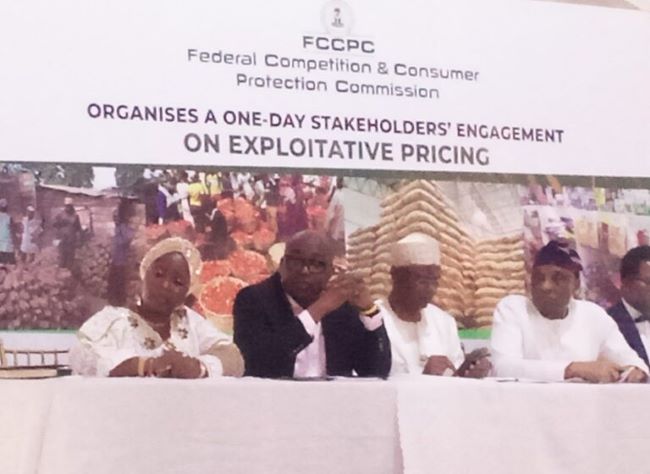 The Federal Competition and Consumers Protection Commission (FCCPC) has called on stakeholders in the production and distribution value chain of the economy to support it in curbing price fixing and other unethical practices.
The Federal Competition and Consumers Protection Commission (FCCPC) has called on stakeholders in the production and distribution value chain of the economy to support it in curbing price fixing and other unethical practices.
Mr Tunji Bello, Executive Vice Chairman, FCCPC, made the call at a town hall meeting in Lagos tagged: “Stakeholders Engagement on Exploitative Pricing.”
Exploitative pricing: FCCPC gives 1 month to traders to crash prices
BRANDPOWER reports that the event was attended by captains of industries, leaders of market associations, transport operators and service providers.
Bello said he called the meeting as a result of findings discovered by the commission during a survey conducted nationwide.
“We discovered that some traders form cartels in the markets and put barriers in form of ridiculous membership fees intended to ensure price fixing in the market.
“Without joining them, they won’t allow anyone to sell goods in the market or provide services.
“Such practices are against the law and constitute some of the offences the commission is against,” Bello said.
He noted that the purpose of the town hall meeting initiative was to engage the stakeholders to hear their stories.
Bello added that the goal was to achieve a consensus for the benefit of all.
According to him, the Lagos stakeholders meeting was coming after the one held in Abuja, two weeks ago.
He explained that the FCCPC initiative was coming at a time Nigerians were experiencing sharp increases in the prices of food items and transportation costs across the country.
While acknowledging that the exchange rate and the increase in petrol price make the old prices unsustainable, Bello frowned at disproportionate increases in the prices of food items.
He attributed it to the handiwork of “cartels” exploiting consumers.
He said that though sections of the law empower the commission to deal decisively with offenders, it chose to first explore the option of dialogue with a view to arriving at a consensus to deal with the growing trend.
“Section 17 of the FCCP Act empowers the commission to eliminate anti-competitive practices, misleading, unfair, deceptive or unconscionable marketing, trading, and business practices.
“It prescribes sanctions, including a fine of up to N10m and a jail term of three years for anyone found guilty by the court,” Bello said.
To facilitate a better engagement, Bello disclosed that the FCCPC had upgraded its portal through which aggrieved consumers could lodge complaints and and get them promptly addressed.
On the economic outlook, Bello stated that the removal of taxes on imported food items, pharmaceutical products and transportation was part of measures taken by the Tinubu administration to cushion the effects of economic reforms.
He sought the cooperation of the traders to ensure that consumers get the benefits through reduced prices.
“Such laudable measures by President Tinubu would, however, be in vain if the benefits are not passed down to the consumers,” Bello.said
Also speaking, the Iya L’Oja of Nigeria, Chief Folasade Tinubu-Ojo, appealed to the commission to hold a symposium with market women, farmers and security agents along the value chain of food transportation.
Tinubu Ojo said the meeting was important to forestall arbitrary increase in prices of good and commodity.






















